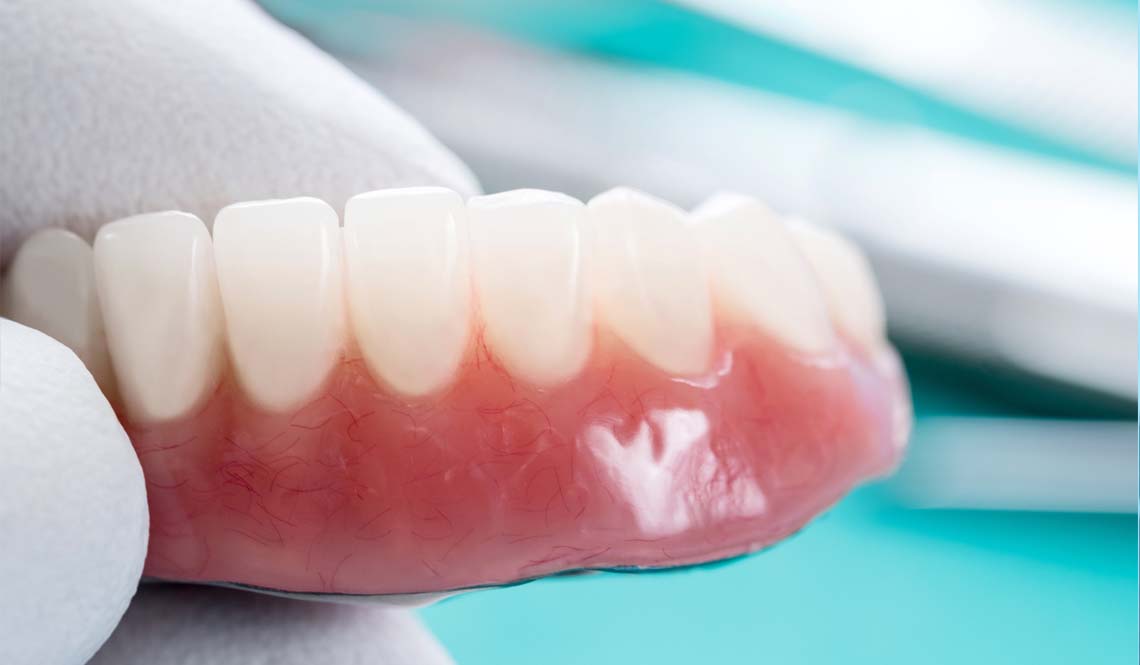Dental Prosthetics

Dental prosthetics deals with the reconstruction of one or a groups of teeth in case of loss of a limited or complete number of teeth. They are used when there is no longer any way to save a damaged or problematic tooth, or when a tooth is already missing. The tooth replacement must be both functional and aesthetic.
All prosthetics are individually prepared and are precisely customized to fit the client perfectly. The range of dental prostheses can seem overwhelming, but our dentist can explain the most effective option for your dental needs.
Dental prosthetic options:
- Dental crowns – (porcelain fused to metal, ceramic, zirconia, composite)
These are used when there has been a loss of hard tooth tissues due to decay or trauma. - Dental bridges (porcelain fused to metal, ceramic, zirconia, composite)
Fills the gap left by one or more missing teeth. - Dental veneers
If the tooth is not damaged, veneers are a simple, aesthetic aid. They are used, for example, when part of a tooth has been chipped off as a result of an accident or in the case of uneven and damaged tooth surfaces. - Ceramic fillings
Ceramic/composite fillings are mainly used for more extensive defects when the tooth cannot be repaired with a simple filling. There are 3 types of fillings: inlays (replaces a smaller part of the tooth), onlays (replaces a larger part of the tooth), overlays (used on the molars – chewing surfaces). - Implants
An implant is a titanium screw inserted into the jawbone by a minor surgical procedure. Its task is to create a stable, fully fixed base for a new tooth. When the wound has healed, a crown or a bridge is put in place Implants can replace one, several or entire rows of teeth. - Removable full dentures
Full dentures replace a full set of missing teeth. - Removable partial dentures
Partial dentures replace a large number of missing teeth.
